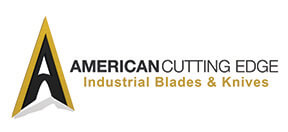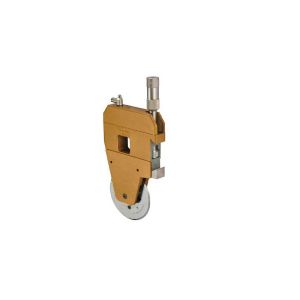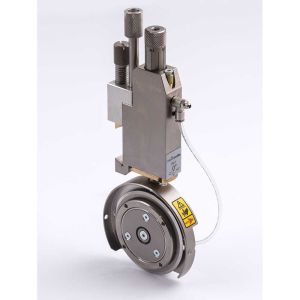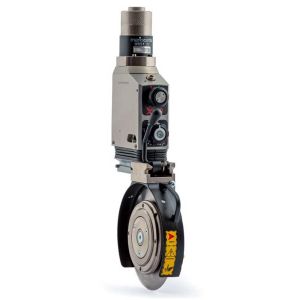Three Ways to Get Better Performance from Your Converting Knives

Optimizing the performance of your converting blades allows you to obtain the longest life, highest quality cuts, and maintain cutting efficiency. Blades that meet the ideal specifications for your converting machine and cutting material provide optimum performance and contribute to increased uptime to ensure the highest outputs.
Changing your current knife selection is not the only way to increase your converting knife performance. Often, the best choice is to upgrade your existing knife to provide better performance, lifetime, and efficiency.
Upgrade Blade Material
Evaluating and adjusting the blade material of your converting knife can dramatically increase the efficiency of your converting machine. If you are experiencing low runtime, low lifetime, or machine inefficiencies, changing to a new blade material may be the solution you need.
For example, many operators who are experiencing very low blade lifetime are using carbon steel converting knives. In this situation, simply changing to a new blade material, without changing the blade style, can increase lifetime, runtime, and production efficiency by days or months.
In razor slitting applications, converting knives manufactured of carbon and stainless steel often display the lowest production efficiency and lifetime. Upgrading the same blade style to tungsten carbide or Zirconia Ceramic can significantly increase knife performance.
In sheer slitting operations, 52100 and D2 are the most common, low-cost knife materials. To increase lifetime, runtime, and production efficiency, consider upgrading to CPM10V or carbide inlaid bottom knives to dramatically improve non-woven material converting.
Add a Coating to Current Blade
Adding a coating to your current blade is a simple way of improving lifetime and production efficiency. Selecting the best coating starts with understanding the cutting application. Experienced blade manufacturers can evaluate your unique converting needs and recommend knife coatings that will increase performance.
PVD or Physical Vapor Deposition coating increases resistance to wear and corrosion. During the coating process, the coating material is vaporized, at a high temperature or in a vacuum chamber. The vaporized coating material is combined with a reactive gas and deposited onto the blade through the process of condensation.
The result is a hard, thin, chemically inert coating. PVD coatings are ideal for decreasing both abrasion and adhesion issues. Boron Carbide , titanium carbide, and titanium nitride are commonly applied to converting knives using a PVD process.
CVD or Chemical Vapor Deposition increases lifetime and production efficiency. To apply a CVD coating, blades are placed in a chamber and heated to a precise temperature to avoid material warping. A gas is then pumped into the chamber where a reaction with the blade material occurs to create a thin layer of coating material. The process changes the chemical properties of the blade and results in a wear resistant coating that has excellent adhesion properties. Titanium carbide is a hard ceramic material that is commonly applied using a CVD process to improve production and wear.
Coatings can be applied to the entire blade surface or limited to the cutting edge. When the converting knife only penetrates a portion of the material, the coating may only need be applied to the cutting edge. Coatings can also be applied to specific areas of the knife to relieve adhesion, abrasion, and wear issues that do not affect the entire knife surface.
Improve Knife Holder Maintenance
Inadequate knife performance could be the result of improper knife holder maintenance. If the knife is not securely installed in the holder, it will display inconsistent wear patterns, will wear more quickly, and produce low-quality cuts.
To maintain the highest quality cuts and increase the lifetime of your blades, ensure that knife holders are rebuilt, cleaned, certified, and when necessary, replaced on a consistent schedule. If you are unsure about the condition of your knife holder, request an evaluation from your blade supplier. Converting knife manufacturers can determine the health of your knife holder using pictures, videos, and even plant visits to ensure the maximum life of your converting blade.
Finding the best way to optimize your converting knifes and cuts requires assessing all aspects of your converting operation, including cutting material, cutting volume, budget, and machinery. Work with a knowledgeable, experienced converting knife supplier that can recommend an ideal combination of solutions to meet your converting needs.




